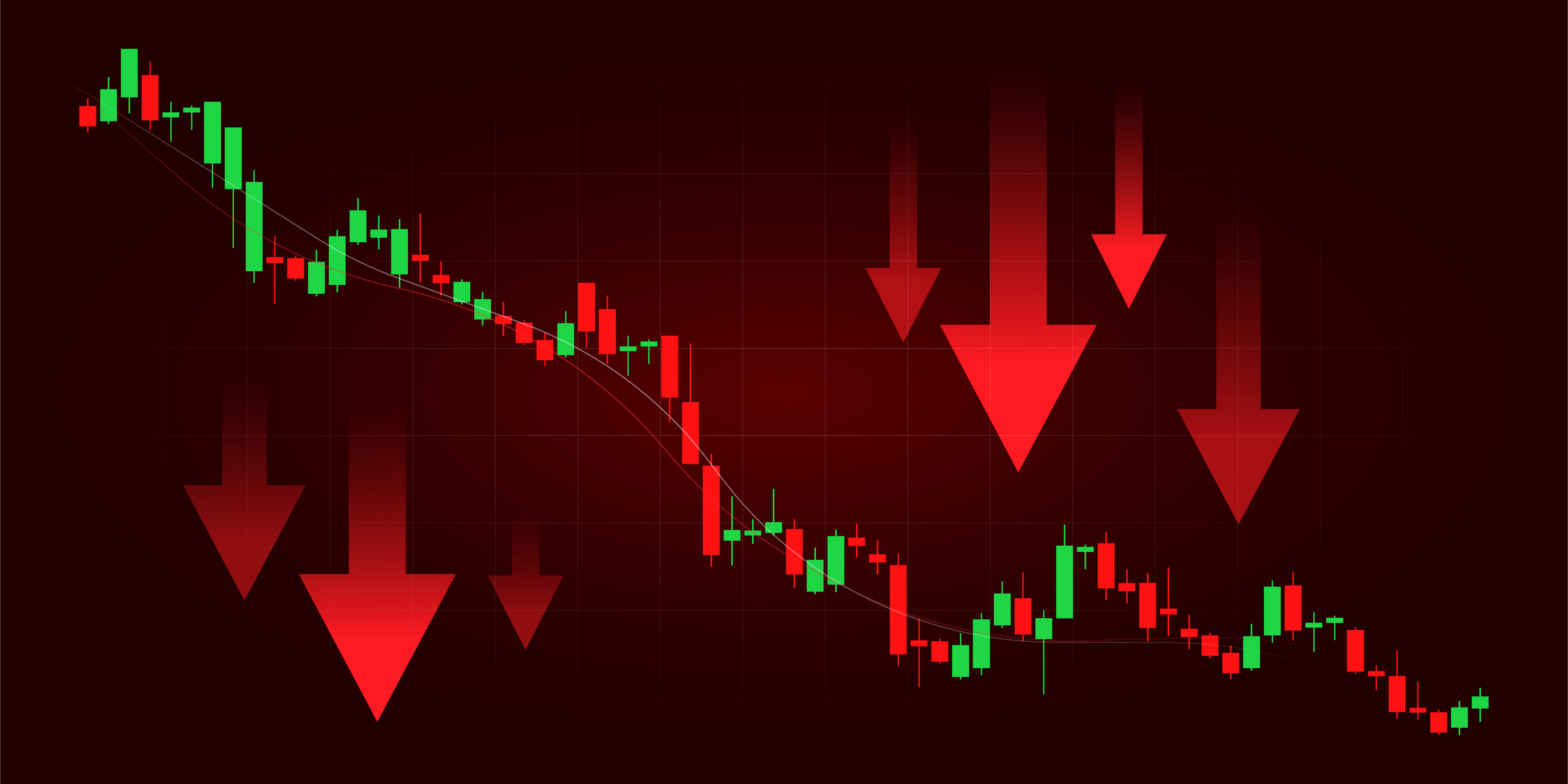7 Stocks to Buy and Hold for the Next 15 Years
Some of Disney's prime assets are folks who never ask for a raise, including Goofy, Cinderella and Luke Skywalker.

Profit and prosper with the best of Kiplinger's advice on investing, taxes, retirement, personal finance and much more. Delivered daily. Enter your email in the box and click Sign Me Up.
You are now subscribed
Your newsletter sign-up was successful
Want to add more newsletters?

Delivered daily
Kiplinger Today
Profit and prosper with the best of Kiplinger's advice on investing, taxes, retirement, personal finance and much more delivered daily. Smart money moves start here.

Sent five days a week
Kiplinger A Step Ahead
Get practical help to make better financial decisions in your everyday life, from spending to savings on top deals.

Delivered daily
Kiplinger Closing Bell
Get today's biggest financial and investing headlines delivered to your inbox every day the U.S. stock market is open.

Sent twice a week
Kiplinger Adviser Intel
Financial pros across the country share best practices and fresh tactics to preserve and grow your wealth.

Delivered weekly
Kiplinger Tax Tips
Trim your federal and state tax bills with practical tax-planning and tax-cutting strategies.

Sent twice a week
Kiplinger Retirement Tips
Your twice-a-week guide to planning and enjoying a financially secure and richly rewarding retirement

Sent bimonthly.
Kiplinger Adviser Angle
Insights for advisers, wealth managers and other financial professionals.

Sent twice a week
Kiplinger Investing Weekly
Your twice-a-week roundup of promising stocks, funds, companies and industries you should consider, ones you should avoid, and why.

Sent weekly for six weeks
Kiplinger Invest for Retirement
Your step-by-step six-part series on how to invest for retirement, from devising a successful strategy to exactly which investments to choose.
My advice to investors has always been to buy stocks for the long term. What’s long? When you purchase a stock, you should think of yourself as a partner in the business forever—or until you need the cash. But forever, or even 30 years, is way out on the dim horizon. A more manageable view might be 15 years. If you invest $10,000 today in a stock that returns an average of 12% per year (a return that is two percentage points higher than the historic long-term return of Standard & Poor’s 500-stock index), you’ll end up with about $55,000.
Not all stocks, however, are suitable long-term buys. A company you expect to be wedded to for 15 years should have six characteristics: products that can endure and aren’t fads; a history of leaders who can adapt; a strong balance sheet; a benign competitive environment; a track record of innovation balanced by vigilance against taking on too much risk; and a strategy that looks beyond the next year and certainly beyond the next quarter.
It’s hard to find all of those traits in one company. But if you’re going long, here are seven that have staying power and a good shot at delivering 12% annualized returns.
From just $107.88 $24.99 for Kiplinger Personal Finance
Become a smarter, better informed investor. Subscribe from just $107.88 $24.99, plus get up to 4 Special Issues

Sign up for Kiplinger’s Free Newsletters
Profit and prosper with the best of expert advice on investing, taxes, retirement, personal finance and more - straight to your e-mail.
Profit and prosper with the best of expert advice - straight to your e-mail.
Building planes is a long-term business. It took seven years for Boeing (symbol BA) to translate its first order for the 787, a plane that cuts fuel consumption by 20% and can fly up to 8,300 nautical miles, into an actual jet that could be delivered to a client. The 787 may become as successful as the 737. More than 10,000 of those workhorses have been sold since 1965, and Boeing continues to sell about 500 per year. The company’s only significant competitor is Airbus. Although Boeing has had manufacturing problems in the past, a recent analyst report from Credit Suisse says the company is emphasizing “execution as the number-one priority.” Boeing, the report adds, will tackle innovation “in smaller, less risky, increments, rather than a ‘moon shot’ approach.” That’s the kind of balance I like in a long-run company.
Meanwhile, the demand for passenger planes is strong. Boeing increased its backlog from 3,771 aircraft at the start of 2012 to 5,237 at the end of June. Despite doubling over the past three years, the stock, at 15 times estimated earnings over the next four quarters, doesn’t seem overpriced. (All prices and related data are as of July 31.)
Like it or not, one of the surest long-term bets is the continued expansion of the federal government. And that means the continued growth of the Washington, D.C., area as well. My favorite D.C. play is Washington Real Estate Investment Trust (WRE), a venerable firm founded in 1960 and the landlord to tenants in 54 shopping centers, office and medical buildings, and apartments in and around the capital. As a REIT, the company pays no corporate income taxes as long as it passes along 95% of its profits to shareholders as dividends. The current yield is an attractive 4.4%. Moreover, the stock has a record of holding up well in rough markets. In 2008, when the S&P 500 tumbled 37%, Washington REIT lost just 4.4%. Over the past 15 years, shares have returned an annualized 7.5%. That’s below our 12% target but three full percentage points per year better than the return of the S&P 500 over the same period.
I hope you invested in Netflix (NFLX) when I first recommended it in 2003. Since then, it’s up by a factor of about 40. I still think this is a great company for the next 15 years. CEO Reed Hastings, 54, has shown that he can adapt brilliantly, combining such Netflix-originated content as House of Cards with a video platform that as of June 30 had 48 million paid users (up 35% in one year). And Netflix has barely scratched the surface overseas.
With a 15-year view, you should generally stay away from stocks with enormous market capitalizations, such as Apple (AAPL). If Apple’s shares, recently $96, were to appreciate at a 12% annual rate, its market capitalization would exceed $3 trillion by 2029. That’s hard to swallow, but I could easily see Netflix’s market cap growing 12% a year, to about $140 billion, in 15 years.
Very few companies increase their earnings nearly every year in what I like to call a “beautiful line.” One of them bears the name of a guy who drew beautiful lines for a living: Walt Disney Co. (DIS). Some of Disney’s prime assets are folks who never ask for a raise, including Goofy, Cinderella and Luke Skywalker. Disney also has a powerful distribution system: studios, video games, music, theme parks, cruise ships, eight TV stations (mainly in big cities such as New York and Los Angeles) and such networks as ABC, ESPN and A&E. Disney has a beautiful balance sheet, too, with a top rating of A++ for financial strength from the Value Line Investment Survey. My only hesitation stems from Disney’s size. With a market cap of about $150 billion, it’s on the edge of my comfort zone.
I love companies that forge an emotional connection with their customers. Whole Foods Market (WFM) does just that, and it’s a relationship for the long term. Sales in the fiscal year that ends in September 2015 should reach $16 billion, up from $8 billion in the year that ended in September 2009. Still, the stock has had a rough go of it lately. It has dropped more than 40% since October 2013, mainly because management has been lowering earnings estimates. Long-term investors shouldn’t worry. With an excellent balance sheet and only 362 stores worldwide, Whole Foods has a great runway for growth as food that is organic, fresh and local goes mainstream. (Safeway, by contrast, has 1,331 stores.) The stock returned 14.7% annualized over the past 15 years; it’s not hard to imagine a repeat.
Many years ago, I touted FedEx (FDX) as the “quintessential Internet stock.” I meant that as more people ordered online, they would need FedEx and its rivals to deliver the goods. What I missed was how FedEx has exploited Internet technology to track and expedite its shipments. With drones (I’m not kidding) and other innovations, FedEx will only become more efficient and essential. Forrester Research predicts that 10% of all retail sales in 2017 will occur online, and although that is impressive, there’s still a lot of room for FedEx to expand.
Shareholders of McDonald’s undoubtedly wish the company hadn’t sold its big stake in Chipotle Mexican Grill (CMG) in 2006. Since then, Chipotle’s stock has risen more than tenfold, and I wouldn’t be surprised if the chain someday has more outlets than its erstwhile benefactor. Chipotle sells burritos and tacos made with organic pork and chicken and ingredients sourced no more than 350 miles away from each restaurant.
The company is growing like crazy. In the quarter that ended June 30, sales at stores open at least one year rose 17% from the same quarter one year earlier. Chipotle plans to open at least 180 new outlets in 2014, an annual growth rate of 11%. And with only one-eighth the revenues of McDonald’s, Chipotle has a lot of room to expand. Its stock is pricey, as you would expect with such a fast-growing company, but good, natural Mexican-style food appeals to a young audience and to the fastest-growing ethnic group in America. It is the future.
Lard your portfolio with stocks like these, but also diversify with a few index funds. As usual, I make no guarantees. Use my choices as a starting point for your own research, and happy long-term hunting.
James K. Glassman is a visiting fellow at the American Enterprise Institute. His most recent book is Safety Net: The Strategy for De-Risking Your Investments in a Time of Turmoil. He owns none of the stocks mentioned.
Profit and prosper with the best of Kiplinger's advice on investing, taxes, retirement, personal finance and much more. Delivered daily. Enter your email in the box and click Sign Me Up.

-
 Stocks Sink With Alphabet, Bitcoin: Stock Market Today
Stocks Sink With Alphabet, Bitcoin: Stock Market TodayA dismal round of jobs data did little to lift sentiment on Thursday.
-
 Betting on Super Bowl 2026? New IRS Tax Changes Could Cost You
Betting on Super Bowl 2026? New IRS Tax Changes Could Cost YouTaxable Income When Super Bowl LX hype fades, some fans may be surprised to learn that sports betting tax rules have shifted.
-
 How Much It Costs to Host a Super Bowl Party in 2026
How Much It Costs to Host a Super Bowl Party in 2026Hosting a Super Bowl party in 2026 could cost you. Here's a breakdown of food, drink and entertainment costs — plus ways to save.
-
 Stocks Struggle for Gains to Start 2026: Stock Market Today
Stocks Struggle for Gains to Start 2026: Stock Market TodayIt's not quite the end of the world as we know it, but Warren Buffett is no longer the CEO of Berkshire Hathaway.
-
 AI Stocks Lead Nasdaq's 398-Point Nosedive: Stock Market Today
AI Stocks Lead Nasdaq's 398-Point Nosedive: Stock Market TodayThe major stock market indexes do not yet reflect the bullish tendencies of sector rotation and broadening participation.
-
 Stocks Bounce Back With Tech-Led Gains: Stock Market Today
Stocks Bounce Back With Tech-Led Gains: Stock Market TodayEarnings and guidance from tech stocks and an old-school industrial lifted all three main U.S. equity indexes back into positive territory.
-
 Dow Adds 300 Points, Ends Losing Streak: Stock Market Today
Dow Adds 300 Points, Ends Losing Streak: Stock Market TodayThe Dow, the S&P 500 and the Nasdaq head into the weekend on high notes after posting gains for the first time since Monday.
-
 President Trump Makes Markets Move Again: Stock Market Today
President Trump Makes Markets Move Again: Stock Market TodayThe White House is moving ahead with plans to reshape the Federal Reserve and to buy shares in more sectors and stocks.
-
 Stocks Are Up and Down on Fed Day: Stock Market Today
Stocks Are Up and Down on Fed Day: Stock Market TodayIn another sign of changing times, JPMorgan has partnered with Coinbase to enable cryptocurrency purchases with credit cards.
-
 The Best Aerospace and Defense ETFs to Buy
The Best Aerospace and Defense ETFs to BuyThe best aerospace and defense ETFs can help investors capitalize on higher defense spending or hedge against the potential of a large-scale conflict.
-
 Stock Market Today: Stocks Rise on Less Deadly Concerns
Stock Market Today: Stocks Rise on Less Deadly ConcernsMarkets are forward-looking mechanisms, and it's good when price action shows there's a future to look forward to.